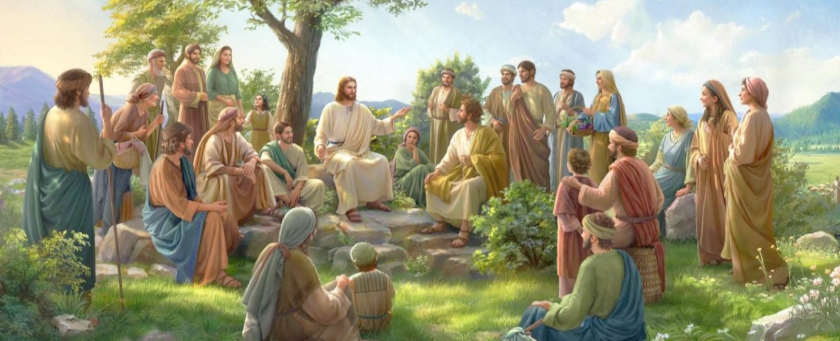Those Who Dwell in Darkness Have Seen a Great Light
Third Sunday in Ordinary Time, Year A

Readings:
Is. 8:23-9:3; Ps. 27; 1 Cor. 1:10-13, 17; Mt. 4:12-17
(Audio recorded live, 22 January 2023)
In the late eighth century before Christ, that is, the early 700s B.C., the Assyrians conquered Israel and began deporting their elite and craftsmen and replacing them with their own people. The goal of these mass deportations was to minimize the likelihood that the common people would start a rebellion. Among the first regions to be lost to Assyria were those in the Northern Kingdom, including Zebulun and Naphtali. These were the regions Isaiah prophecies about in our first reading, and although these regions were lost, Isaiah tells us in the end, the Lord has glorified them. Those lands were indeed glorified because they would eventually be the place where Jesus establishes his base of operations, as we heard in the Gospel: Land of Zebulun and land of Naphtali, the way to the sea, beyond the Jordan, Galilee of the Gentiles, the people who sit in darkness have seen a great light, on those dwelling in a land overshadowed by death light has arisen.
What does it mean that the Lord has glorified the land? To give glory is to give great honor, praise, distinction, or renown. Glorification is an exaltation to honor and dignity. Imagine a defeated country, full of people with no hope, no leadership, abandoned. But, despite this, God always leaves a remnant of faithful believers. They never forget the covenant or the Law. Though they may doubt, they never forget God. Nor does God forget them. St. Paul once said, “We are afflicted in every way possible, but we are not crushed; full of doubts, we never despair. We are persecuted but never abandoned; we are struck down but never destroyed” (2 Cor. 4:7-8). He said this about the Early Christian Church, but whether the persecution come from the Romans, Assyrians, or Babylonians, the situation is the same. Of course, the difference for the Christian is the sure hope in the resurrection. Again, St. Paul says, “While we live we are constantly being delivered to death for Jesus’ sake, so that the life of Jesus may be revealed in our mortal flesh” (2 Cor. 4:11). This reminds me of the prayer of St. Teresa of Avila: Christ has no body but ours, no hands, no feet on earth but ours, ours are the eyes with which He looks compassion on this world, ours are the feet with which He walks to do good, ours are the hands, with which He blesses all the world. Ours are the hands, ours are the feet, ours are the eyes, we are His body.
If we are Christ’s body on earth, then we do well to be united to him as the head must be united to the body. St. Paul addresses the issue of people following different preachers, which causes division. He exhorts them to “be united in the same mind and in the same purpose.” In other words, not to get caught up in whether or not one preacher is better than the other, rather, we are to focus on the message of the Gospel, which the Holy Spirit has preserved even to today.
The Gospel message continues to give us the hope we need in a world that is full of difficulties and challenges, but we persevere in faith, with the strength that comes from Almighty God. Just as the lands that were once destroyed and overrun by enemies became the place where Jesus began his public ministry, so too, can those who walk in darkness today see a great light. That light is Jesus Christ, who continues to shine brightly in the hearts of his faithful. When we keep our hearts fixed on him, his life, his teaching, his promises, his love, we cannot help but filled with hope. Lord, you are my light and my salvation!
And so, as we prepare to celebrate the Eucharist, let us focus our hearts and minds on the love of Christ poured out for each of us, and may the communion we share, unite us to his light: The light of truth, the light of peace, the light of love.





Share this post
Twitter
Facebook
Pinterest
Email